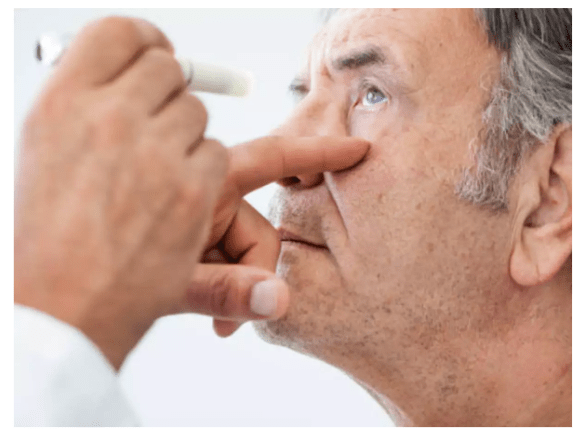At an awareness programme on diabetic retinopathy at Brown Hall of King George’s Medical University (KGMU) organised to mark “World Diabetes Day” on Monday, Pathak said, “Doctors say diabetes causes blindness by damaging internal tissues of the eyes and this can be prevented by early detection.”
Lucknow: Eye checkups will soon be made mandatory for all diabetic patients reporting for any disease in district hospitals to prevent blindness caused by diabetes, said deputy chief minister Brajesh Pathak, who also holds the health portfolio.
At an awareness programme on diabetic retinopathy at Brown Hall of King George’s Medical University (KGMU) organised to mark “World Diabetes Day” on Monday, Pathak said, “Doctors say diabetes causes blindness by damaging internal tissues of the eyes and this can be prevented by early detection.”
He asked principal secretary, health and family welfare, Parthsarathi Sen Sharma, who was present on the occasion, to make a proposal for eye screening of all diabetics visiting district hospitals. “In this way, diabetic retinopathy can be screened,”he said. Advocating the role of a healthy lifestyle to prevent diabetes, he said everyone should avoid stress, walk daily at least 40 minutes and follow Indian practices. “Nearly 90% of people who are pre-diabetic can prevent themselves by following indigenous lifestyle that includes waking up early, yoga and diet as mentioned in Ayurveda.”
Earlier at the event, faculty at the ophthalmology department, KGMU, Prof Sandeep Saxena explained the four stages of diabetic retinopathy. He said in the first, balloon-like swelling develops in certain areas of the blood vessels in the retina. In the second stage, blood vessels in the retina get damaged and there is leakage of blood and fluid into the retina. In the third stage, blood vessels get blocked with even more leakage of blood and fluid into the retina. In the fourth and final stage, there is poor or no circulation inside the eye.
“In the first two stages, damage to vision can be reversed by good blood sugar control and minimum treatment. In the third stage, though vision gets affected but further damage can be stopped and also improved. In the fourth stage, patients experience complete blindness that can rarely be treated,” he added.
Meanwhile, vice-chancellor Lt Gen (Retd) Prof Bipin Puri said, “Since diabetic retinopathy is preventable, awareness should be a priority. People should change their lifestyle, follow a healthy diet and exercise daily.” Head of ophthalmology department, Prof Apjit Kaur advised people to include calcium, vitamin D and fibre in their diet.


